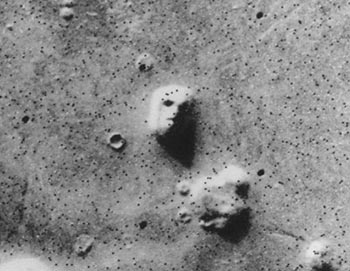Hounding Baskerville
A New York Times study found that readers were most likely to agree with a statement if it was written in the Baskerville font. The least agreeable font was Comic Sans. pic.twitter.com/BFoDiEOwZj
— Quite Interesting (@qikipedia) July 19, 2019
Board of Summer
Looking for a good project to keep your kids (or perhaps yourself) entertained over the summer? Why not try “Escape from the Haunted Mansion,” a free papercraft project from Disney Experience. Print, assemble, and play your own board game.

Tattoo You
(Optional musical accompaniment for this item.)
Tattooing. Everyone, it seems, has done it (some of us would only get a tattoo if it could be of Tattoo) but, now, a tattoo may have a better purpose than just being something you’ll regret in 20 years: testing blood glucose levels.
The art of tattooing may have found a diagnostic twist. A team of scientists in Germany have developed permanent dermal sensors that can be applied as artistic tattoos. As detailed in the journal Angewandte Chemie, a colorimetric analytic formulation was injected into the skin instead of tattoo ink. The pigmented skin areas varied their color when blood pH or other health indicators changed.
Etsy Faces the Music
Well, buys it, anyway. The Verge: “Etsy, the e-commerce platform for handmade goods, is acquiring music gear marketplace Reverb for $275 million in cash.” Reverb, which sells new, used, and vintage musical instruments and accessories, has ben called “The Etsy of musical instruments.”
Freak Out
Frank Zappa’s ‘Jazz From Hell’ (1986) is the only entirely instrumental album that has been sold with the ‘Parental Advisory: Explicit Lyrics’ sticker on it.
— Quite Interesting (@qikipedia) July 21, 2019
Unplanned Obsolescence
Gizmodo has one of those clickbaity kinds of headlines we admittedly and ashamedly find hard to resist: “What Technology Is Most Likely to Become Obsolete During Your Lifetime?” (Please let it be Facebook...Please let it be Facebook...Please let it be Facebook...) The interesting conclusion that most of the folks that they spoke to came to was that nothing really ever becomes completely obsolete. You can always find someone somewhere using something that was supposed to have been dead and gone ages ago. (What about buggy whips? Well, ever been to Amish country?) And, in fact, sometimes they come back, like film cameras and vinyl records. This is good news for those who keep saying that print is going to become obsolete.
First It Was Meth-Gators...
What could possibly go wrong?
— Leah McElrath ????? (@leahmcelrath) July 22, 2019
American crocodiles — once headed toward extinction — are thriving at an unusual spot:
The canals surrounding a Florida nuclear plant.https://t.co/TwTpvDuJ6B
The Road Less Travelled, Apparently
Over at The Guardian, David Mitchell vents his angry logic at the Guinness Book of Records, which has suddenly proclaimed a new steepest street in the world.
The new steepest street has been in continuous occupation since time immemorial. Much longer, in fact, than its predecessor as holder of the accolade. So, the fact is – and I hate to be rude about what we now know is, at best, the second steepest street in the world – that this predecessor was an impostor, a usurper, albeit an unknowing one. It was never steepest. Even on the day of its construction, a steeper street already existed.
Fundamentally, this is a damning indictment of the system by which the title of world’s steepest street is awarded, a process that, slightly suspiciously, appears to have something to do with Guinness. Common sense suggests that Guinness is not a substance likely to be of help in the global ranking of gradients in built-up areas.
I should clarify that there is no suggestion that the whole steepest street issue got screwed up because everyone involved was off their face on Guinness, or even that their concentrations were marginally impaired by the responsible enjoyment of Guinness. They may not have drunk any Guinness at all. The link with Guinness is pretty tenuous. Guinness World Records, formerly the Guinness Book of Records, isn’t even owned by Diageo plc (which owns Guinness) any more.
The problem arises when would-be record holders self-report their records to the Guinness people (not that the streets themselves did the reporting). Turns out, the Guinness folks have not gone to the trouble of measuring the steepness of every street in the world and thus conclusively determined that a particular one in Wales is indeed the steepest in the world. This may perhaps be revelatory to everyone who was convinced of the rigor of the Guinness people.
Time and Tide
Just having fun with that app that shows you what you’ll look like in 40 years pic.twitter.com/HN6GebNBUg
— Bram (@brumthefirst) July 18, 2019
Et Tu, RCMP?
Back in June, we linked to a story about a press briefing by a Pakistani minister that was inadvertently streamed on Facebook Live with a cat filter. Against all odds (perhaps), it’s happened again, this time to the Royal Canadian Mounted Police, who livestreamed a press conference about a double homicide with, for reasons passing understanding, a cat filter turned on.

Still, it’s not as disturbing as that trailer for the live-action Cats movie.
Slugfest
Great Twitter thread about snails in Medieval manuscript illumination.
Thread: everyone knows that medieval art is filled with snails fighting knights, but there's actually a whole medieval snail ecology and society, from snail-birds to snail-monks. And, ofc, snail-cats.
— Erik Wade (@erik_kaars) July 17, 2019
WARNING: this thread gets very very silly.
(Paris, MS. 62) pic.twitter.com/VDxqRya481
Airbunb
Have you ever wanted to spend a night in the Wienermobile? (No, that is not a really creepy Anthony Wiener come-on line.) Rather, the actual Oscar Mayer Wienermobile. Via Boing Boing, two Chicago area Hotdoggers (which is—good grief—what Wienermobile drivers are called), have listed their one-bedroom Wienermobile on Airbnb and starting July 24, $136 gets you a night in the ’dog. It sleeps two—and breakfast is included (hopefully not hot dogs).
The Potty’s Over
Here’s a headline that’ll scare the crap out of you, as it were: “Disruption has come for toilet paper.” It’s from Vox, which insists that
Over the past five years, a host of startups, searching for something, anything, to disrupt, have decided that toilet paper is ripe for change. (The older companies, like Charmin, are trying new things too, sort of. At least bigger things.) These new companies have names like Who Gives a Crap, Tushy, Cheeky Monkey, and No. 2. Their paper is
Nope, sorry, we’re stopping right there. Ever since the advent of the Internet, we have been besieged with cutesy names, but we have to draw the line somewhere. Mr. Whipple is going to come back and squeeze the life out of someone.
Cute Animals
Mind you, we are not immune to “cute” and have a soft spot for cute animals, such as a mother centipede cradling her offspring.
This is a mother Centipede cradling her babies pic.twitter.com/VjiVGMuyWl
— 41 Strange (@41Strange) July 20, 2019
This Week in Printing, Publishing, and Media History
July 22
1598: William Shakespeare’s play The Merchant of Venice is entered on the Stationers’ Register. By decree of Queen Elizabeth, the Stationers’ Register licensed printed works, giving the Crown tight control over all published material.
1893: Katharine Lee Bates writes "America the Beautiful" after admiring the view from the top of Pikes Peak near Colorado Springs, Colo.
1932: American novelist Tom Robbins born.
July 23
1829: In the United States, William Austin Burt patents the typographer, a precursor to the typewriter.
1888: American crime novelist and screenwriter Raymond Chandler born.
1903: The Ford Motor Company sells its first car.
1957: English comedian, actress, and screenwriter Jo Brand born.
1962: Telstar relays the first publicly transmitted, live trans-Atlantic television program, featuring Walter Cronkite.
July 24
1847: Richard March Hoe patented the rotary-type printing press.
1895: English poet, novelist, and critic Robert Graves (I, Claudius and Claudius the God) born.
1900: Zelda Fitzgerald, American author, poet, and wife/drinking buddy of F. Scott Fitzgerald born.
1901: Author O. Henry is released from prison in Columbus, Ohio, after serving three years for embezzlement from a bank. The ending was not a surprise.
1969: Apollo 11 splashes down safely in the Pacific Ocean.
July 25
1837: The first commercial use of an electrical telegraph is successfully demonstrated in London by William Cooke and Charles Wheatstone.
1965: Judas! Bob Dylan goes electric at the Newport Folk Festival.
1976: Viking 1 takes the famous Face on Mars photo.

July 26
1502: German printer Christian Egenolff born.
1856: Irish playwright, critic, and Nobel Prize laureate George Bernard Shaw, born.
1887: Publication of the Unua Libro, founding the Esperanto movement.
1894: English novelist and philosopher Aldous Huxley born.
1928: American director, producer, screenwriter, and cinematographer Stanley Kubrick born.
1989: A federal grand jury indicts Cornell University student Robert T. Morris, Jr. for releasing the Morris worm, thus becoming the first person to be prosecuted under the 1986 Computer Fraud and Abuse Act.
July 27
1866: The first permanent transatlantic telegraph cable is successfully completed, stretching from Valentia Island, Ireland, to Heart's Content, Newfoundland. They could now communicate with each other to their heart’s content.
1940: What’s up, Doc? The animated short A Wild Hare is released, introducing the character of Bugs Bunny.
1938: Gary Gygax, creator of Dungeons & Dragons, born.
July 28
1844: English poet Gerard Manley Hopkins born.
1866: At the age of 18, Vinnie Ream becomes the first and youngest female artist to receive a commission from the United States government for a statue (of Abraham Lincoln).














